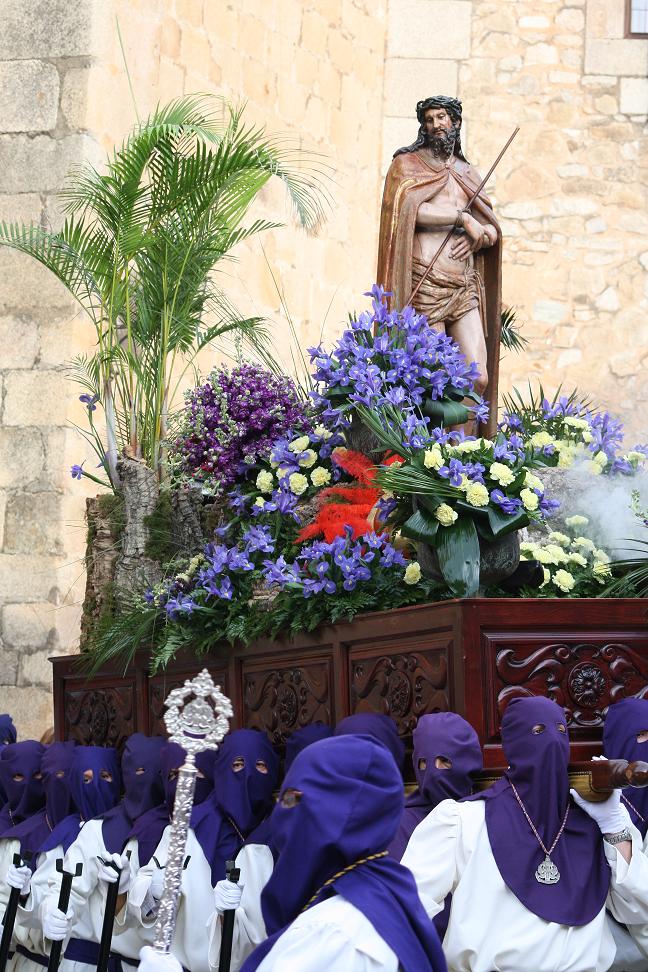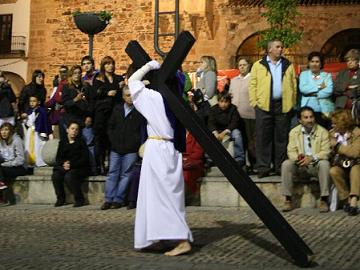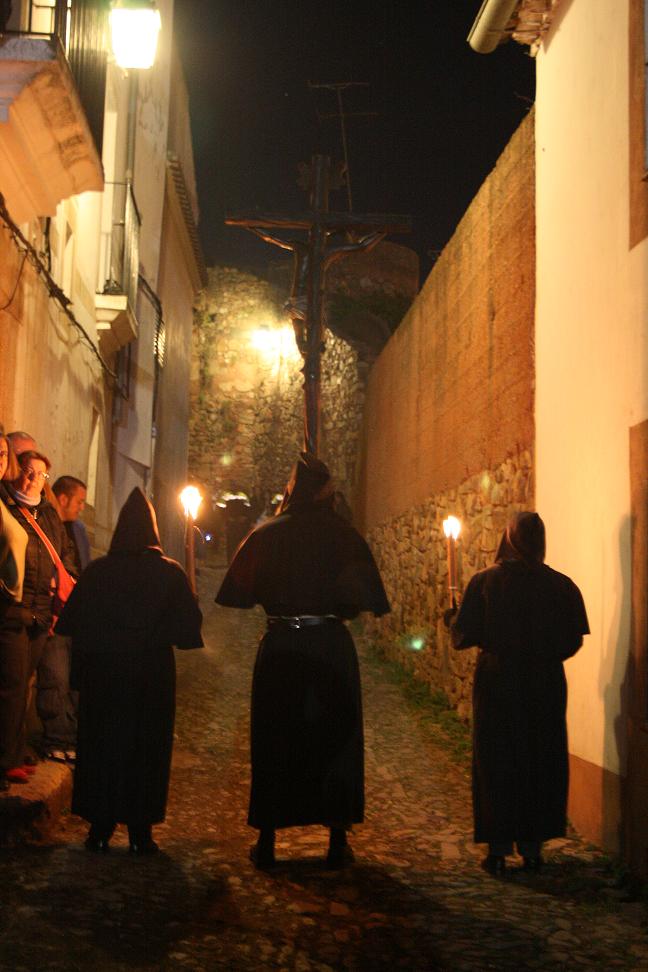
Photos by author.
REVERBERATING from around the corner, drumbeats become people and people become a procession.
Incense hangs down the adarve, the parapet into which wave after wave of people are crowding.
Less than 10 feet of space from wall to wall, close enough to concentrate the eye-stinging smoke, close enough to realize that there are only two ways out, and both would mean climbing over hundreds.

